Online Agribusiness Management Courses
Curriculum Details
56–59 credit hours required in the major
SMSU’s agribusiness management courses focus on an array of business concepts, all rooted in agriculture and farm management. You’ll take 20 online courses to complete the major—study marketing, accounting, and other competency areas to position yourself as a leader capable of delivering results in agribusiness and numerous other fields.
In addition to the core agribusiness management courses, you’ll complete an Agricultural Finance concentration that explores banking and finance principles. The concentration includes three online courses, and you can gain hands-on experience by selecting an optional internship.
Core Courses
Credits
AGBU 495 is a required course for SMSU Agribusiness Majors. Students use electronic portfolios to evaluate their academic accomplishments and career readiness. Students evaluate and communicate the content of their portfolios using the goals and student learning outcomes of the Agribusiness program. Performance evaluation also includes SMSUs Liberal Education Plan Rubrics for written and speech communication, information literacy, and critical thinking. Agribusiness students systematically analyze and communicate what they have learned in their degree program, and synthesize those results to create valuable plans for their future careers after degree completion.
Introduction to supply and demand analysis; study of competition and monopoly power; resource allocation, pricing and the market system; business and labor regulation; and income distribution.
This course requires a mathematical background including two years of high school algebra or MATH 060. Sophomore standing recommended.
This course emphasizes the role agriculture plays in the development process. On completion of this course, the students should be able to explain the role of agriculture in the development process, analyze the effects of developing country economic policies on the agricultural sector, and use economic reasoning and tools such as graphs to analyze the agricultural sector.
An introduction to the basic elements of law and the legal system. Topics include: common law liability (torts); product liability; criminal law; and commercial transactions (Common Law Contracts & UCC Sales). The student should be able to analyze situations and then apply the law to it.
Business Core
Credits
This course examines the economy as a whole: measurement of the level of aggregate economic activity, growth, employment and unemployment, inflation, government spending, taxation and deficits, the monetary system, international trade, and how other economic systems work.
This course requires a mathematical background including two years of high school algebra or MATH 060.
MGMT 221 provides students with an introduction to computer software used in todays business world. Students will learn how to use word processing, database, spreadsheet, and graphics software tools as means of communication and problem-solving. The course includes significant computer lab time in which the students skills and proficiency in the use of these computer software programs will be developed and refined. Students will also be introduced to enterprise resource planning concepts and software and how these programs are integrated into day-to-day business operations.
Business Core – Select one of the following:
Credits
Beginning statistical theory and procedures, including data collection, sampling techniques, organization and presentation of data, measurement of central tendency, probability concepts, discrete and continuous probability distributions, statistical estimation, hypothesis testing, and linear regression. Students use a computer to do some statistical analysis.
Introduction to measures of central tendency, measures of dispersion, frequency distributions, large and small samples, testing of hypotheses, and correlation analysis. Use of computers in statistical analysis. The required preparation is MATH 110 or three years of high school mathematics.
This course provides students with an introduction to the use of statistical methods in behavioral sciences research. Topics covered include descriptive statistics, t tests, analysis of variance with post-hoc tests, correlation, linear regression, and chi-square tests. Students taking this course should also enroll in the laboratory section, in which they will learn how to use statistical software for data analysis.
The required preparation is MATH 110 or three years of high school mathematics.
Math and Science Core
Credits
Math and Science Core – Select one of the following
Credits
Math and Science Core – Select one of the following
Credits
A study of the fundamental concepts of algebra. Topics include: equations and inequalities polynomial, rational, exponential, and logarithmic functions and their graphs, and systems of linear equations.
Agricultural Finance Concentration
Credits
Monetary system and monetary policy, including aggregate economic activity, economic policy and goals, and intermediate finance.
Financial planning and analysis, capital budgeting, management of working capital, management of long-term funds, promotion, expansion, and evaluation.
Agricultural Finance Concentration – Select one of the following
Credits
The analysis, interpretation, presentation, and effective writing of letters, memos, reports, and other types of business documents.
This course is a general introduction to business and personal risk management. Risk has been defined as uncertainty about if, when, and how much loss you can have. Risk Management deals with this uncertainty as does some aspects of Finance, Accounting and Marketing. Risk Management offers some additional options. One of the most common methods in our culture is Insurance. It is purchased as one way to offset/manage risk by transferring the uncertainty resulting from perils that expose a person, or business, to loss. The Insurance Industry makes a profit by charging to take responsibility for other people and businesses risk.
Principles of investments with emphasis on security appraisal and portfolio composition.
Request More Information
Complete this form to receive information about coursework, admissions, tuition, and more.
